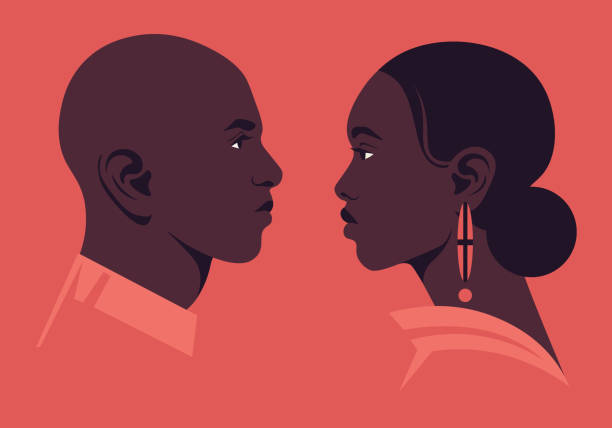We listed 4 key reasons that divorce is allowed in the Ibibio culture in a previous article (read here). In this article, we highlight 4 curious reasons Ibibio people give for divorce. They are curious because it is not common to find such reasons in many other ethnic groups. Please read on.
-
Multiple births:
It is well known that Twins were taboo in Ibibio land and also around the Southern corner of Eastern Nigeria. Back in history before Mary Slessor’s effort, twins were killed and their mother was ostracized and left to die in forests. Naturally, a divorce was enforced as a result. The Ibibios had since abandoned the practice, but it bears listing this as one reason for divorce in historical times.
-
Inability to perform sexual duties:
Unknown to the present age, there was a time when women were sent home because they could not satisfy their husband’s sexual tastes. Read more on this in Oto-Obong Uwah’s book, Ibibio Nation: History and Culture (Buy it here). If the man was the culprit, there were cases where the woman committed adultery to be able to conceive and give birth. Back in history, the concept of adoption was not known or practiced.
-
Neglect:
A husband who neglected the wife could frustrate her enough for her to seek divorce. Hence, it was possible for a wife to divorce the husband in Ibibio culture unlike in most other African and Semite cultures. Till today, spousal neglect is still abhorred in Ibibio land.
-
Habitual cursing:
Ibibio culture outlawed foul-mouth. It was bad enough to cause marital crisis. So if either husband or wife earned the reputation of verbal abusiveness and habitual cursing out the other, the offender could be fined. And if this habit continued, the party on the receiving end could call for a divorce.
How the divorce took place
The moment a husband threw out the belongings of the wife from the hut where she stayed in, divorce had begun. He would then take her back to her father’s.
This was tough on the wife most times, because, in those days, wives had no belongings. Everything she had was her husband’s. Aniekan Nana (PhD) in his thesis (here), wrote that there are cultural and traditional practices that condition women to passivity and dependence. As a result, after a divorce, the woman was worst affected. Sent out of her home, she literally had nothing of importance left to her name. If the husband was the divorced, his family heads would be engaged to conduct the separation.
Bride Price Refunds
There is also the issue of returning the bride price. After the wife has been returned, the bride price is to be refunded in full by her Father in law. Where the husband was the offender that led to dissolution of the marriage, the wife’s family would gladly return his dowry on their own accord.
If the wife’s family cannot come up with the dowry for refunds, it became an issue. In many families, the father of the bride would ask the divorcee to wait until the woman remarries. Then he would receive the incoming dowry and hand over to the former husband. In cases of malice, the owed husband did frustrate the wife’s family since they have become indebted to him.
There are cases where the husband refused to receive the refund out of spite to intentionally frustrate the divorced wife and her family and any remarriage plans.
For m0re on the Ibibio culture and those of the Annangs, Oros, Efiks and other Ibibio groups, please buy and read Ibibio Nation: History & Culture.
Keywords: Curious, Reasons for divorce, Ibibio Marriage, Culture, History






